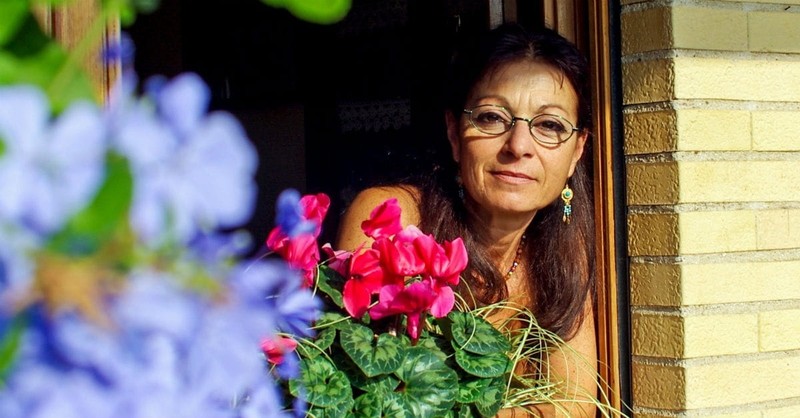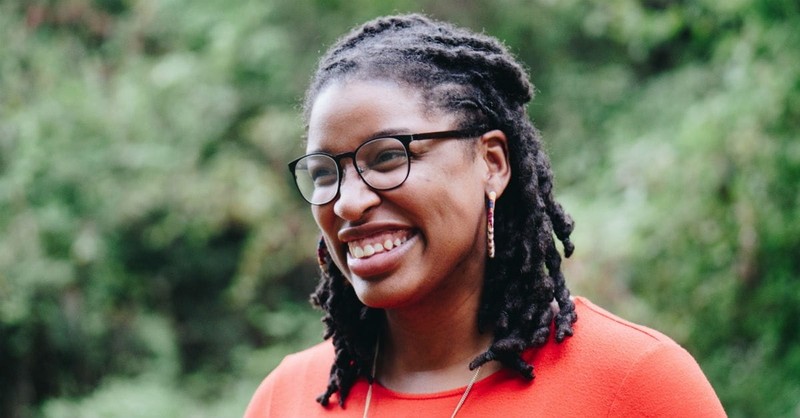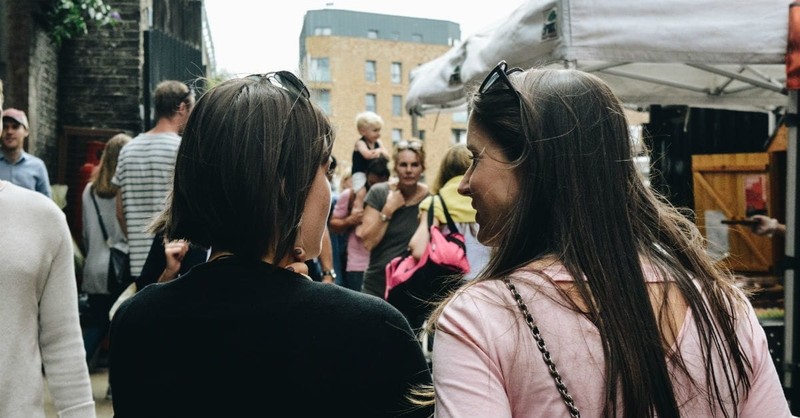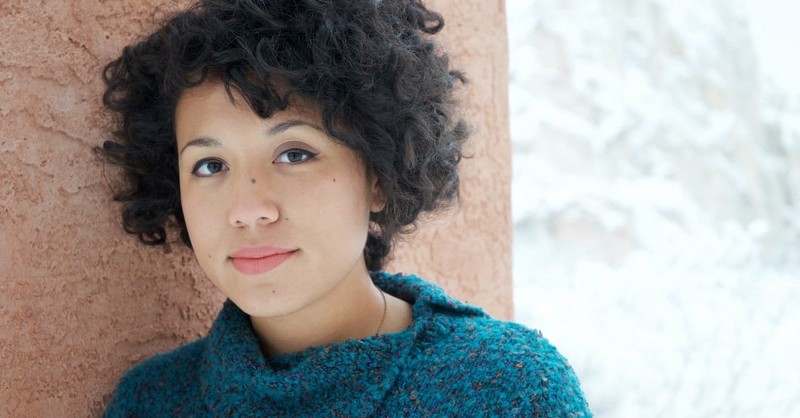
I was one of those women who felt like everything was taken away from her. We had just sold our family home and relocated 50 miles away to a new town where I knew no one – all for my husband’s career. When we divorced, he had an established life here, but I had only our children who were still willing to talk to me.
Many divorcing women face not only the loss of their husband, but also their church, other people they consider family, their home, and their sense of community. And in many cases like mine, divorce means we even lose our children. Experiencing all this loss can make a woman feel very alone in this world, especially while trying to walk through a divorce and to, somehow, build another life.
Now, six years later, I wouldn’t say that I have completely integrated into my community, but I have made some friends and rebuilt my life after divorce. I found a support group of divorced women and got to know a few of the other local farmers. I like my doctors and the places I go to exercise. Occasionally, someone will even recognize me and say hello.
These all may seem like simple things, but they are precious to someone who knows what it is to feel alone. And it took a lot of work on my part to get to this point of feeling that I have a supportive community.
If you’re going through a divorce (or are just lonely where you are), here are six things that I learned over the past six years that can help you find your supportive community.
Photo Credit: Thinkstock

1. Join groups and get out of the house.
Staying home and crying yourself to sleep might seem like your only option, or the only thing you want to do, but at some point, that is not helpful to your healing.
The very first place I made friends and got support was at my children’s homeschool events and classes. Because I had no one to talk with at the time, I poured my burdens all over these homeschool mothers at meetings. Taking my children out to these classes, the library, festivals, car shows, movies, or museums was hard at first, but I proved to myself that I could survive in this new community without my husband.
Photo Credit: Pexels

“Self-care is important for everyone but especially for divorcing and single mothers."
Even if you’re taking baby steps towards reestablishing your life and support system, each outing is one step in that direction. Going to a local exercise, painting, or other kind of fun class will get you out of the house and away from your circumstances, while keeping you busy and practicing self-care.
I’ve talked about this in my article, “Practicing Self-Care During Divorce.”
“Self-care is important for everyone but especially for divorcing and single mothers. Because to love and care for others, you must love yourself and take your basic needs, seriously. We give from the overflow. Those who are depleted emotionally and physically have nothing left to give.”
Photo Credit: Unsplash/Eye for Ebony

2. Look for fellowship with other divorced women.
The second place that I made friends and found support was at my local Divorce Care meetings. The first time I attended, I wasn’t even sure if my marriage was heading towards divorce. I just knew my marriage was experiencing another infidelity, and I wanted to take a different path this time. Meeting other Christian women who were going through a divorce, or had been divorced for years, showed me that I too could survive this.
My new friends invited me to several local churches, and later that year, my children and I were baptized for the first time in our lives! Because of these ladies’ support, I realized that God was calling me back to Him. He wanted me to surrender my future to Him and follow wherever He would lead, even if that meant through all of this pain and loss.
I learned to walk in my purpose and trust God to be with me the entire way, no matter what that path looks like. I now live a thriving life, and every day, I share how I got here with other divorcing or divorced women.
Photo Credit: Unsplash

3. Be open minded, yet protective.
During and after divorce, you need a group of people who understand what you’re going through. Keep your group small to protect yourself, while also being open minded to a new supportive community.
When I was going through my divorce, one of my closest friends was not someone I would have normally considered for a friend. And I found the most comfort from women much older than myself because they survived divorce themselves and were happily thriving years later.
Now working as a divorce mentor and coach myself, I support women of all ages. And I have found that ladies who are open minded and willing to hear the advice of others are the one who are focused on working through their healing, without getting distracted.
Photo Credit: Unsplash/Hunter Newton

4. Don’t expect one person to fill in every gap.
We often think that when our husband is gone that one friend, one counselor, or one mentor will fill the huge gap left by this one person. Expecting another person to be that for you is asking too much from that friendship. Trust me, I’ve tried and ruined many relationships because I didn’t understand this. No one besides God can be all that you need during this time.
One of the best ways your community can support you is to point you to God, while giving you space to grow. A community that does everything for you and tries to numb your pain won’t empower you through this time of healing. Instead, you’ll end up needing these people to survive. And in the end, they could unknowingly become your secondary abusers by trying to run your life for you, telling you exactly what you should do and how you should do it.
Photo Credit: Unsplash/Bryan Aspen

"Instead, find a few...listening ears."
Instead, find a few same-gender friends, a counselor, and maybe a divorce coach or mentor who will allow you to process what you’re experiencing as well as empower you to make the healthiest decisions for your unique set of circumstances.
Plus, having a few listening ears will allow you to vent your emotions so that you’re better able to keep them controlled in court hearings and other important meetings. And you won’t be paying your lawyer as much to listen or read your long emails, of everything that is going on during the divorce process.
Your support community should be pointing you back to God for all of your healing. He is the one true Healer. Although you may feel that God has abandoned you too, He has not. He cares for all women and children in need. His affections are for the marginalized. And He dearly loves all of His children. Along with your support system, you need God by your side as well.
Photo Credit: Thinkstock

5. Online communities can help too.
It's possible to find community online that can help you develop relationships with others who are dealing with divorce and abuse recovery. Plug into divorce and abuse healing blogs, forums, and online communities. Those are great resources for you to educate yourself and just to see that you’re not alone on this journey.
As hard as it is to share your painful story or read someone else’s story, that connection and feeling of “that’s exactly what I’m experiencing” is like putting salve over an open wound. Relating to others soothes our own pain. As we relate to others, even those we don’t know, we start to heal our own pain and hurt.
Photo Credit: Unsplash/Sergey Zolkin

6. The importance of relational support.
As an introvert it is very easy for me to be alone and keep myself isolated. And being alone is not a bad thing. But when we purposefully avoid all social interaction, we develop a lifestyle of social isolation. I knew if I kept myself from a supportive community, then I could not grow and learn from others. Because I engaged in friendships with others, they helped me to see that healthy relationships do exist, even after seeing only dysfunctional ones for most of my life. They helped me learn the skills I needed to separate from unsafe people and have better relationships in the future.
It is uncomfortable to step outside our comfort zone and seek others who understand our pain. You might feel so alone that you keep yourself in solitude thinking no one will care or understand. But there are people who do understand and do care. They’re out there and want to bless you by sharing how they’ve survived and thrived after a divorce.
Photo Credit: Unsplash

"You can...find healing too."
My divorce healing journey has been centered around seeking God for my healing, understanding that He is the Healer, accepting myself as the person God created me to be, finding His purpose for my life, and experiencing healthy relationships with people walking this same path. This is a thriving life after divorce. Not fighting to replace everything that was lost but finding the new life that God was showing me that I needed to have. You can walk this path and find healing too. I invite you to join me!
Jen Grice is a Christian Divorce Mentor and Empowerment Coach, author of the book, You Can Survive Divorce: Hope, Healing, and Encouragement for Your Journey, a speaker, and a single homeschooling mom. She writes full-time at JenGrice.com and empowers women to survive and heal after their unwanted divorce on her YouTube channel as well. Jen believes that through God's healing, grace, and redemption that all Christian women can survive... and even thrive, after divorce. Navigating this foreign territory we call divorce? Feeling alone? Start here!
Photo Credit: Thinkstock
Originally published Monday, 07 May 2018.



